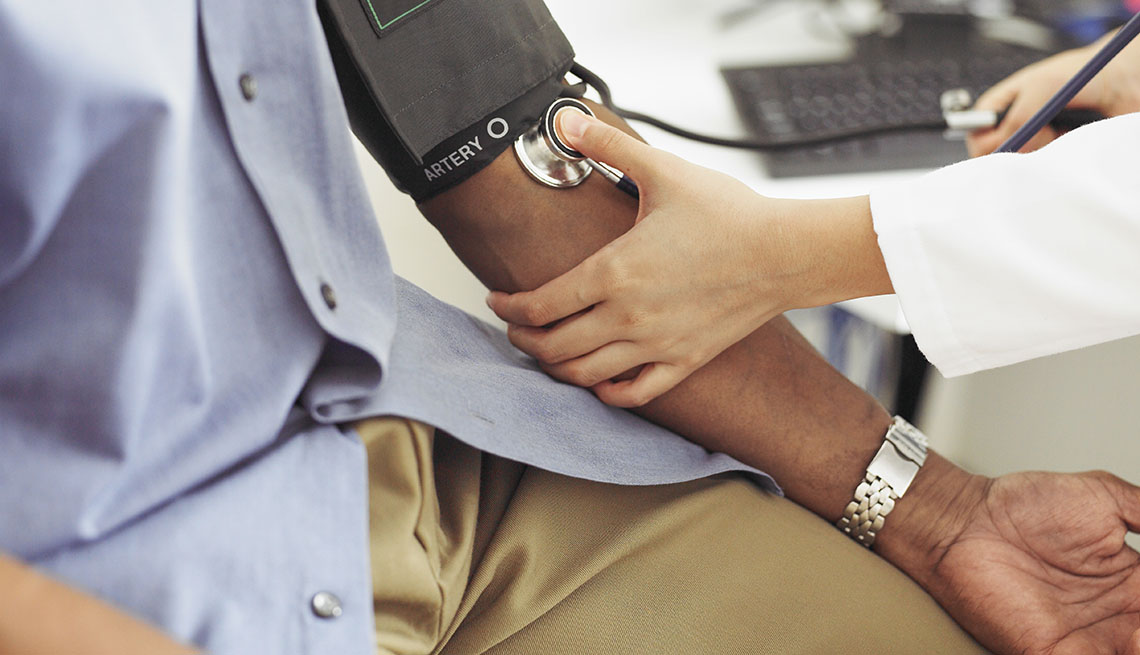
5 reasons to get your blood pressure checked
- Select a language for the TTS:
- UK English Female
- UK English Male
- US English Female
- US English Male
- Australian Female
- Australian Male
- Language selected: (auto detect) - EN
Play all audios:

3. THE "NEW NORMAL" MAY BE LOWER THAN YOU THINK The definition of high blood pressure has changed in recent years. Before 2017, anything below 140/90 mm Hg was considered OK. Now,
a blood pressure at or above 130/80 mm Hg is deemed high, according to updated guidelines from the American College of Cardiology and the American Heart Association. "This still comes
as a surprise to many patients, even though that recommendation has been in place now for nearly four years,” Erin Michos, M.D., a cardiologist and an associate professor in the Division of
Cardiology at Johns Hopkins School of Medicine, said in a 2021 interview. “Many patients are still not familiar with the new targets.” Results from a large federal study called SPRINT are a
major reason for the change in guidelines. Researchers found that adults age 50 and older who brought their systolic blood pressure below 120 mm Hg significantly lowered their risk for heart
attack, heart failure or stroke by 25 percent, compared with adults with a systolic blood pressure of 140 mm Hg. They also slashed their risk of death by 27 percent. "That's
huge,” said Cora Lewis, M.D., professor and chair of the Department of Epidemiology in the University of Alabama at Birmingham School of Public Health, who worked on the study. “That's
people who did not die.” In fact, the benefits of intensive blood pressure control were so obvious that the study was stopped early. However, several years of follow-up data, published in
2021 in _New England Journal of Medicine_, confirm the initial findings. "The most important message is that blood pressure control is important, that blood pressure control literally
saves lives,” says Mahboob Rahman, M.D., professor of medicine at Case Western Reserve University and the division chief of nephrology and hypertension at University Hospitals Cleveland
Medical Center. “If you work with your doctor to control your blood pressure well, you will be at lower risk of developing heart disease; you live longer, literally.” 4. RISKS ARE LOW WHEN
IT COMES TO LOWERING BLOOD PRESSURE Clinicians have a tendency to be more cautious when it comes to treating hypertension in older adults, who are more likely to have multiple chronic
conditions and are at increased risk for falls, Michos says. (Dizziness and lightheadedness can be symptoms of blood pressure that's too low.) But recent research shows that fear is a
bit unfounded. A 2016 sub-analysis of SPRINT data revealed that intensive blood pressure control in adults 75 and older did not result in more injurious falls. It did, however, result in
significantly lower rates of cardiovascular events and death. Another finding that challenges a common concern when it comes to older adults: Aggressively treating blood pressure didn't
raise participants’ risk of experiencing orthostatic hypotension — that feeling of dizziness when you go from sitting to standing because of a drop in blood pressure. "That actually
gets better when you treat blood pressure better,” Michos says. “And that might sound paradoxical, but it may be that once you just get better control of blood pressure in general, then some
of the things that lead to orthostatic hypotension” also get treated, she explains.
